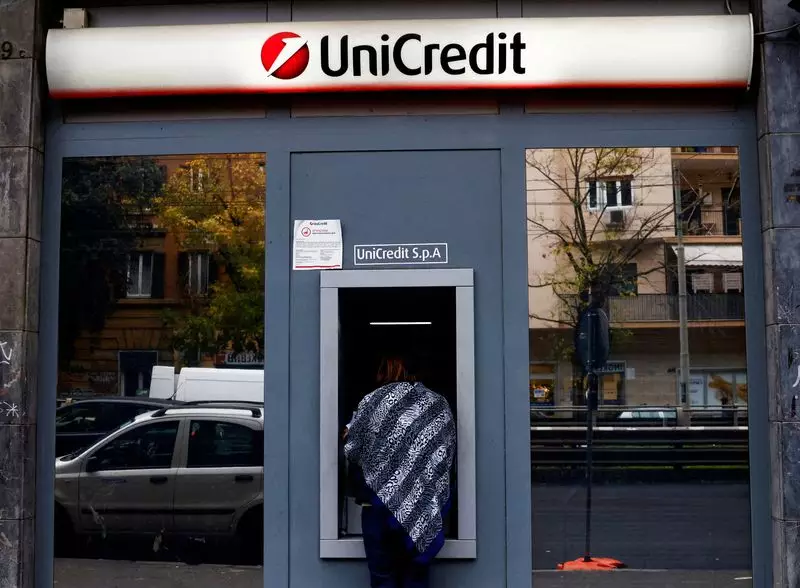The landscape of European banking is undergoing significant turmoil as strategic plays and governmental sentiments clash. None illustrates this tension more strikingly than the recent interactions between Italian banking giant UniCredit and Germany’s second-largest lender, Commerzbank. As UniCredit has moved to bolster its stake in Commerzbank — now sitting at an aggressive 28% through the use of derivatives — it has raised eyebrows in Berlin, which views these actions as hostile and lacking coordination. This development has unveiled the complexities of cross-border banking stakes and the robust defense mechanisms that governmental entities can deploy.
UniCredit’s maneuvers, particularly under the leadership of CEO Andrea Orcel, appear to be meticulously calculated yet fraught with implications. The bank had previously signaled its intentions to abstain from significant moves until after Germany’s federal elections. However, this latest stake increase contradicts that previous stance, leading a German spokesperson to characterize the action as “uncoordinated and unfriendly.” This distancing statement illustrates an underlying anxiety within the German government regarding foreign influence over a critical part of its financial infrastructure. The refusal of Berlin to embrace these overtures points to a deeper, inherently protective sentiment, one that seeks to preserve the integrity of its national financial institutions.
Following this escalation, analysts have expressed concern over the limited recourse available to the German government in staving off a potential takeover. While a desire to frustrate UniCredit’s ambitions has been articulated, the legal avenues appear constricted and difficult to navigate. The complex regulatory framework surrounding mergers and acquisitions, particularly for significant stakeholders, adds layers of challenge. Consequently, Germany’s government finds itself in a precarious position, balancing the need for economic growth with the desire to retain control over its domestic institutions.
The strategy employed by UniCredit to build its stake—utilizing derivatives without immediately converting them into shares—serves to highlight not only the innovativeness of modern banking practices but also their potential risks. This approach illustrates a form of pragmatic opportunism, allowing UniCredit to increase its influence while walking the fine line of legal compliance. Yet, as Marco Troiano from Scope Ratings notes, this tactic poses significant pressure on Commerzbank’s management, constricting their strategic decisions amid rising external pressures.
Commerzbank is set to reveal its strategic plans in an upcoming presentation, a key moment for investors watching closely. In the face of UniCredit’s activities, the organization must articulate a clear roadmap that reassures stakeholders of its independence and growth potential. Interestingly, investor sentiment around Commerzbank reflected resilience, with shares rising 2.4% shortly after UniCredit’s announcement, showcasing a complex sentiment where investors are weighing potential value against the backdrop of external challenges.
UniCredit’s actions may signal a shift in the competitive dynamics of European banking, with potential ramifications that reach far beyond the immediate parties involved. As larger players like UniCredit seek to consolidate power and resources, smaller regional institutes may find themselves either at risk or inspired to innovate and change tactics. The situation underscores a critical narrative in the European banking landscape, one that will require regulatory bodies and financial institutions to adapt.
Ultimately, as UniCredit navigates this tumultuous period, the outcome will hinge not only on its acquisitive strategies but also on how deeply entrenched national interests and regulatory frameworks play into the evolving storyline. The tension between ambition and caution will dictate future developments, establishing precedents that will resonate throughout the European financial sector. The forthcoming weeks and months will provide clarity regarding not only UniCredit’s position in the German banking scene but also the broader implications for cross-border investment within the European economic arena. As both entities proceed, their interplay may very well redefine traditional paradigms and expectations in international banking.

